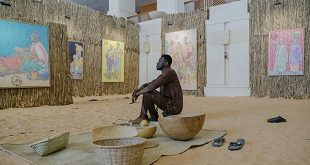An ample supply of sound information is not sufficient to make good choices; news consumers need critical-thinking skills. Information is much like the food we eat: we need to understand its ingredients, and where and how it is produced, and the effects of overconsumption.
It will probably take decades to rebuild trusting relationships between consumers and mainstream news media. Information consumers will always have biases and incentives to select one piece of information over another. Even so, we can improve critical-thinking skills so that citizens know how to pick trustworthy sources, and resist their own biases.
Cultivating critical-thinking skills takes time and practice, which is why it is more important than ever to invest in education. Some of the models that have been used abroad may work in the U.S, too. For example, in Ukraine, a recent initiative carried out by IREX mobilised librarians in an effort to neutralise the detrimental effects of Kremlin-funded propaganda. Fifteen thousand Ukrainians were taught concrete skills in avoiding emotional manipulation, verifying sources and credentials, detecting paid content and hate speech, and debunking fake videos and photos.
The results were impressive: participants improved their ability to distinguish trustworthy news from false news by 24%. Better yet, they then trained hundreds more people to detect disinformation, thus multiplying the initiative’s overall impact.
With a rather modest investment, we can make teaching these skills a standard practice in school curricula. Philanthropists can also create or support grassroots organisations that work with citizens to strengthen their ability to consume information critically.
Accurate information and critical-thinking skills are indispensable to democracy. We cannot take them for granted, even in America. That is how fake news wins.
****
Aleksander Dardeli is Executive Vice President of IREX, a global nonprofit organization that works to strengthen good governance and access to quality information and education.
****
Copyright: Project Syndicate, 2017.
www.project-syndicate.org
 The Independent Uganda: You get the Truth we Pay the Price
The Independent Uganda: You get the Truth we Pay the Price

